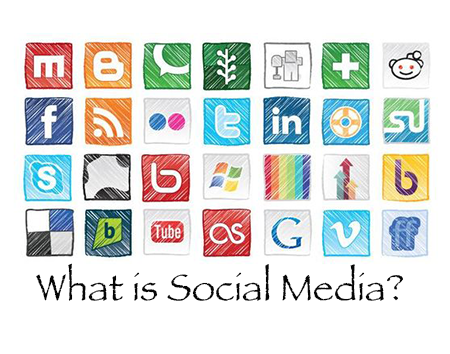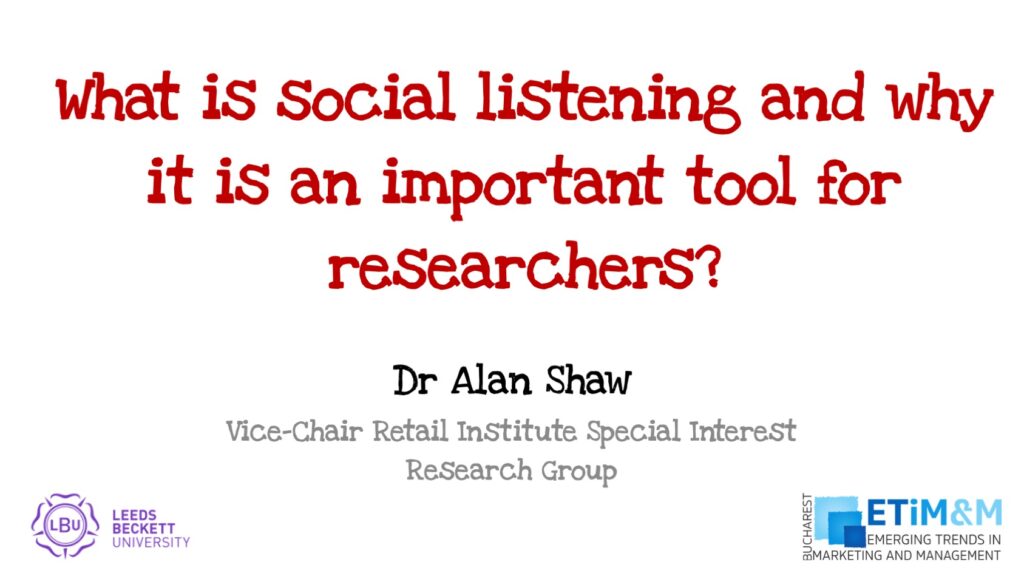 What is social media? Well, put simply, it can be considered as any digital platform that allows users to share information. If we go right back to basics and consider the definitions of each word we can see that “Social” is an informal gathering organised by members of a particular group and “Media” is a means of mass communication which is regarded collectively (Oxforddictionaries.com).
What is social media? Well, put simply, it can be considered as any digital platform that allows users to share information. If we go right back to basics and consider the definitions of each word we can see that “Social” is an informal gathering organised by members of a particular group and “Media” is a means of mass communication which is regarded collectively (Oxforddictionaries.com).
Social media platforms allow us to create “Social Networks”: these are your networks of personal and/or professional relationships that you interact with. In the past social networks were considered a domain of teenagers: today professionals like General Practitioners (doctors.net.uk) and academics (academia.edu) will use it to enhance their working lives.
The great thing about social networks is that it brings together like-minded people, allowing marketers to target a ready built segment. This is where the term social media marketing comes in. It can be defined as the process that utilises traditional marketing techniques through social media sites. You should consider it as just another marketing channel. I have noticed that some people view social media marketing as a means of either getting more “likes” on their social media sites or a way of increasing visits to a particular website. Such strategies should not be the primary objective: it is quality not quantity that counts. Social media marketing is all about supporting the overall marketing and business plans.
An important factor in social media marketing is advocacy marketing: this is where your customers become an integral part of the brand promotion. Tripadvisor is a good example of advocacy marketing in action. It does however mean that quality and customer service becomes an important feature, social media platforms make this aspect of your brand highly transparent. You need to know how to harvest it when it is going well and how to control it when it is going badly. Never remove posts that you do not agree with, it will only inflame the matter (unless of course they are obscene, inflammatory or libellous). Digital marketers need to add PR management to their armoury of skills if they are to be successful in this new arena.
What then are the different types of social media platforms and how do you use them? Well, there are too many to list in its entirety but we could categories them as follows:
- Social Bookmarks & News.
- Video & Podcasts Streaming.
- Photo Sharing.
- Blogging.
- Presentations Sharing.
- Wikis.
- Forums.
- Communities.
Lets now view these categories individually:
Social Bookmarks and News
In my opinion social bookmarks and social news sites have now become synonymous, the boundaries between them have blurred. These sites allow users to post links that they believe will be interesting to others. The links are either categorised at the initiation, rated over time or aggregated by a set of editors. In the past social bookmarks and news links were mainly found on blogging sites, today we can see them on commercial websites too. This is because they are a great way to start the viral process.
Social bookmarks also provide the added benefit of helping poorly indexed sites. By this I mean, sites that are not frequently crawled by search engine spiders. This is because if a site has not been crawled then it won’t be index so the search engine won’t list it. The nature of social bookmarking sites are such that they receive many posts everyday so search engine robots will frequently review them. I would recommend bookmarking every new page you publish. This increases the chance of it being found but it does not guarantee it achieving a high ranking. Examples of social bookmarking and news sites include:
- Delicious.
- Reddit.
- StumbleUpon.
- Digg
- Buffer
- Fark.
Videos and Podcasts Streaming
Social media platforms that provide video and podcast streaming allow users to share content that they have produced. This content could be educational, political, religious, amusing, musical, promotional, artistic or just plain bizarre. Youtube is the biggest provider of video content and according to Alexa is the third most popular site in the world. There are other platforms like Vimeo and Dailymotion (plus the multitude of adult sites which I will ignore for reasons of decency). When producing your videos there is nothing to stop you publishing them on a range of video stream platforms. What you must do is abide copyright laws.
Podcasts are also very popular, these can be published on a number of sites including Itunes. Media companies like the BBC use podcasts to summaries elements of their radio shows. We must not forget Itunes University, it provides a mixture of educational videos, podcasts and text.
Some of you may think that music sharing sites should be classed as a social media platform. I would say no because they tend to operate illegally (due to copyright infringements). A good example to consider is Napster: they had to change their business model after various lawsuits.
Photo Sharing
Photo sharing sites provide individuals and organisations with new ways of organising and managing their photos. They also allow these users to share their photos with people who really matter to them (Flicker). The sharing of these photos can be for closed groups (only your immediate network) or open groups (anyone searching the particular platform or wider internet). It provides organisations with another channel to market their brands: Pinterest have a specific business option with added functionality.
Blogging
Blogs are websites or web pages that provide comment usually on a particular subject. They can be produced by an individual or an organisation. The most important aspect of blogging is the creation of content. Content is a key part of your SEO process. It also provides a reason for individuals to return to your site.
As an organisation you should consider producing your own blog to supplement the corporate website. You should also consider engaging those high profile bloggers who write about your brand’s subject area but be wary about how you try to influence them as most are very impartial.
Micro Blogging
Micro blogging sites allow users to publish short updates, the most common platform is Twitter. There is also Vine, a video sharing app used to capture a six second video and Jelly, an app used ask followers a question about a particular photo. We also have Tumbler which claims to be a micro blogging site but there is no limits on the amount that can be posted on a particular blog.
Presentations Sharing
There are social media platforms that focus specifically on presentations. Sites like Slideshare allow you to do this although they now include videos in their content. There are also new providers like Prezi that use Flash based platforms which are novel.
Forums
Forums or more specifically internet forums are areas where questions can be raised and answers, issues can be discussed and debated, tips can be shared and enhanced or relationship fostered and nurtured.
Wikis
Wikis are very similar to blogs. The primary difference is there is no owner. The content is managed in a collaborative format: individuals who register can add, modify or delete data whenever they get the urge to do so. There is usually some form of control through moderators or editors. By enlarge it will be the community that manages the process: individuals will highlight any anomalies to the appropriate controlling body who will then get it fixed. The most popular wiki is Wikipedia.
Communities
Social communities are your classic social networks. They include sites like Facebook, Google + and Linkedin. Unlike the other social media platforms they allow users to post items from every type of social media site. Alternatively you could use it as your “one stop shop” for housing all types of media. My recommendation is not to do this as it limits your exposure, you must utilize all channels if you want to maximize your reach.
This article gives you a basic insight into social media, look forward to my next article which will demonstrate how to apply it.
Other articles you might find interesting:
- Managing social media
- Social Media Marketing Campaigns from around the world.
- Using Twitter at Events.
- Social Media Competitions: 5 Simple Steps.
- Map Your Twitter Followers.
Alan Shaw
Latest posts by Alan Shaw (see all)
- What is social listening and why it is an important tool for researchers? - July 31, 2021
- COVID-19 and Remote Learning: Experiences of parents supporting children with SEND during the pandemic. - June 30, 2021
- Using Netnography To Evaluate The Launch And Collapse Of The European Super League - April 21, 2021
- Developing Semi-Structured Interview Questions: An Inductive Approach. - April 9, 2020
- Developing Semi-Structured Interview Questions: A Deductive Approach - April 9, 2020














